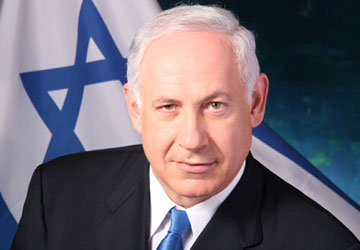
There has been much talk this election season of Israel in general, and Israeli Prime Minister Benyamin (Bibi) Netanyahu in particular, being injected into the American political system. It has recently come to light that this is actually a relationship that works in both directions.
Fifty-eight percent of all money raised over the last two years by Tzipi Livni, former head of left-of-center Israeli political party Kadima, came from abroad. More so by current Kadima head Shaul Mofaz, who took in two-thirds of his money overseas.
But both of these Israeli politicians seem like local grassroots heroes when compared with Netanyahu’s overseas pull of 96.8 percent.
While the report offered no breakdown by country from where this money is coming, half of all the money raised by Netanyahu was from one family – the Falics – in Miami, Fl. And this is a family that has helped to build and support settlements, even some not recognized by Israel.
Not long ago, Netanyahu built the largest coalition in Israeli history. While it did not last long, he briefly oversaw a coalition that contained 94 Members of Knesset. That is out of only 120 sitting MKs. This would be the American equivalent of one party controlling the Presidency and almost 80 percent of both Houses of Congress.
And yet of the $311,000 that Netanyahu has raised in campaign contributions over the last two years, over $300,000 of it has come from abroad.
It is worth reflecting on the fact that as Prime Minister, Netanyahu oversaw and supported Likud-drafted legislation that sought to take foreign money out of the reach of Non-Governmental Organizations (NGOs). One major component of the argument in favor of this legislation, which ultimately stalled, was to remove the influence of foreigners from Israeli politics.
And all the while, Prime Minister Netanyahu was raising money from foreigners to influence Israeli politics.
Recently, PM Netanyahu called for new Israeli elections to take place early, in January 2013. This is about eight months ahead of schedule. There have been several reasons cited – or speculated over – for this move. One reason is the inability of the current coalition to pass a budget. There has also been talk that the ongoing global recession, which Israel has mostly avoided these last few years, will soon be making its way to Israel’s shores and that Bibi wants to go to the polls before the downturn hits. Lastly there is speculation that former Prime Minister Ehud Olmert, who stepped down under a cloud of ethics violations charges, is considering getting back into the political process. By holding elections early, Bibi removes the opportunity for Olmert to get organized and to pose a threat. As it stands, Netanyahu is widely considered poised for a resounding victory, with no serious contenders set to challenge him.
Prime Minister Netanyahu is a strongman in Israel with no serious political opponents. And yet his campaign either cannot, or chooses not to, raise money at home. Four years ago, it came out that now President Obama had raised money from foreign sources. It was a pittance compared to his overall fundraising, but it was extremely controversial. Imagine if an American candidate for President had raised not some money from abroad, but almost all of his money from abroad. What would we, as Americans, say about that candidate’s priorities and loyalties. Would Americans trust a candidate to hold any office, much less that of the Presidency, when his campaign war chest was financed from abroad. As stated by the report, this money “came from people who live overseas, cannot vote in Israel and are not directly impacted by the elected officials’ decisions.”
Israel, as every nation, deals with many domestic concerns ranging from security to the economy. But Israel is also a major player in international politics. The West worries over, dissects and praises the Arab Spring, Israel lives amongst it. While America worries about the Muslim Brotherhood winning elections in Egypt, Israel sees a once-peaceful border suddenly becoming an area for concern. While the international community is relatively unified in its opposition to a nuclear Iran, Netanyahu cannot give a speech or do an interview without focusing on the threat that a weaponized Iran would pose to Israel.
And yet the question must be asked, to whom is Bibi responsible: Israelis or the Falics? Just as it has been argued that a Mitt Romney Presidency will be massively indebted to Sheldon Adelson, is Netanyahu not massively indebted to this family from Florida? What happens when the interests of the Falics collide with those of the average Israeli? Will Bibi feel a greater responsibility to the people who voted for him, or the people who gave him the money to run in the first place? The answer to this question could literally be the different between peace and conflict, between Israel choosing to work with the Palestinians and choosing to focus on settlement expansion. Netanyahu is nearly sure to win reelection in January. The question is, for whom is he running?
Follow me on twitter @jlemonsk